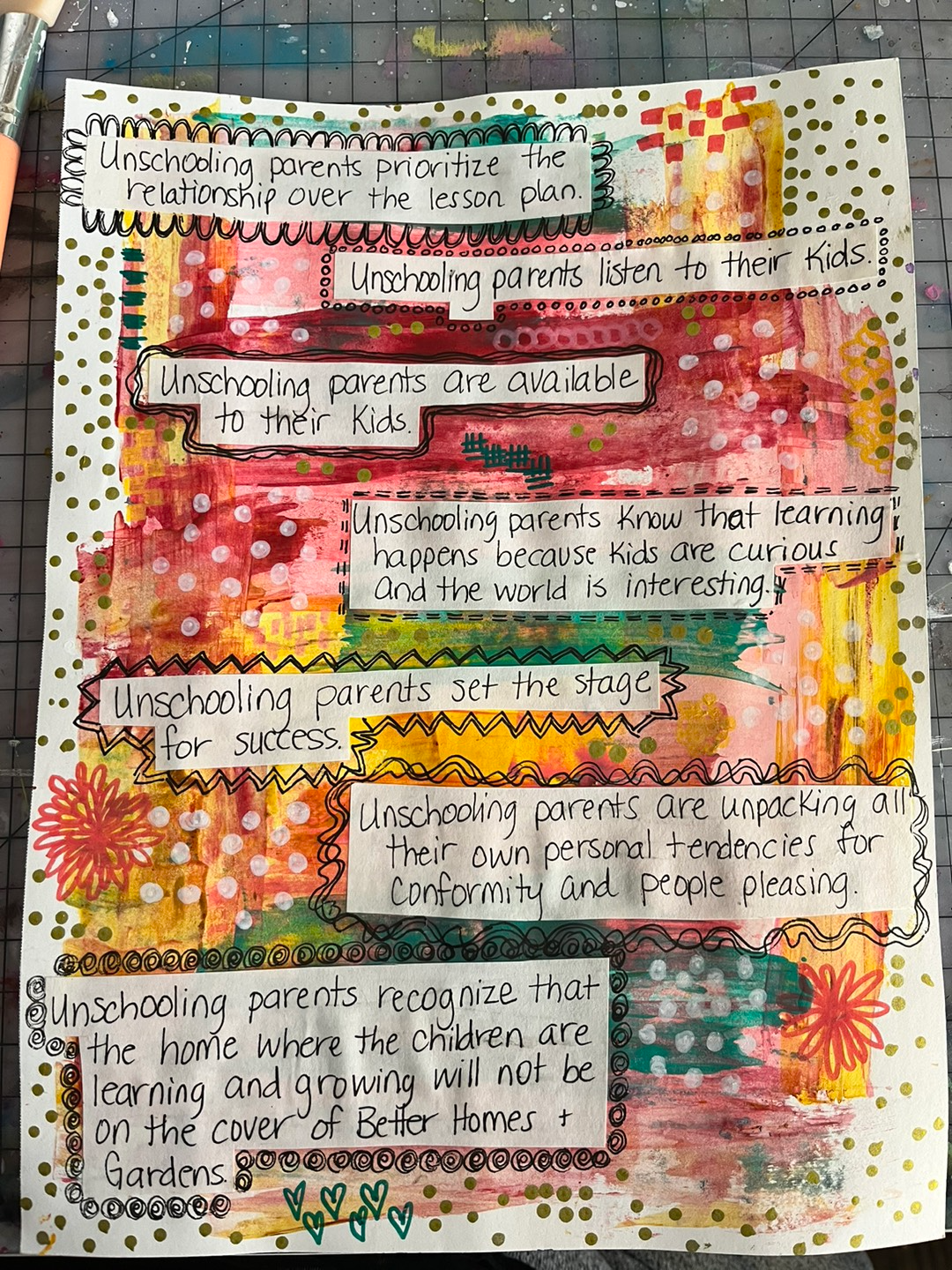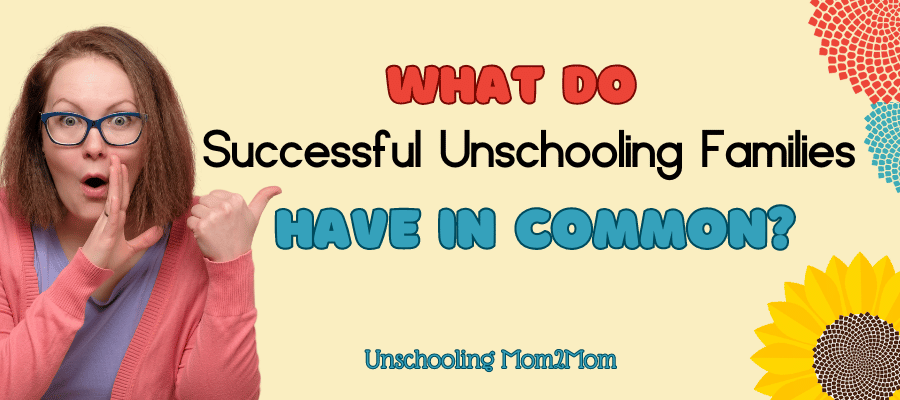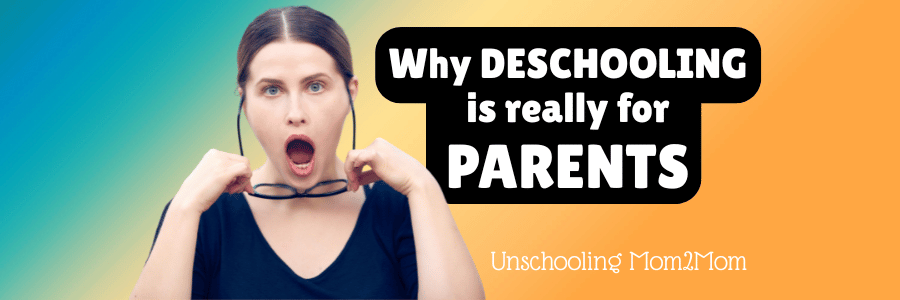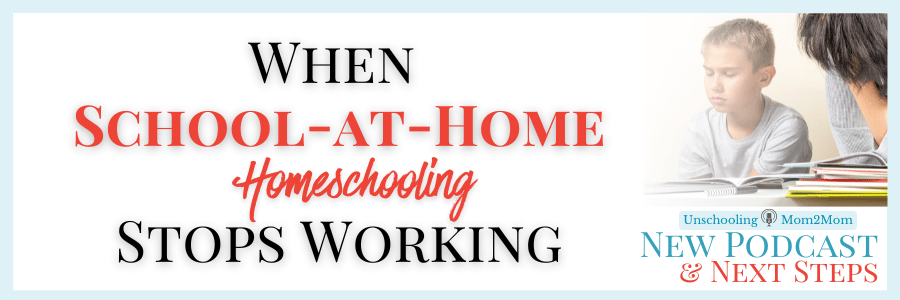What’s the Common Denominator in Successful Unschooling Families?
What Sets SUCCESSFUL Unschooling Families Apart...
After spending the month talking about how NOTHING is "typical" with unschooling families, I want to back peddle that a little. A few things really ARE common in families who SUCCESSFULLY unschool. And whether you're just learning how to unschool or you've been doing this for a while, it helps to know these important pieces of information!
I want to talk to you this week about what IS typical among families who are successfully unschooling. Honestly, I thought I’d have 3 ideas to share with you. And then there were 5 and now there are 7.
They’re all good to bring to the front of your mind - so I’m giving them all to you this week!
I’ve spent the last two weeks creating a Typical Unschooling Day Challenge
in my membership group.
We’ve been talking about all the ways unschoolers’ lives are anything BUT typical. We’ve seen how individualizing to the places, people, and phase of life make it impossible to duplicate what’s going on in someone else’s house.
So now that that’s really clear, I’m going to pivot a little. Shake things up a bit.

I want to share a few things that really are similar in successful unschooler homes. I’ve seen more than a few unschooling homes. After nearly 30 years in this community, raising my own 3 kids, moving around the country, I can tell you definitively that while the details will vary widely... a few things ARE actually typical.
Probably more than these 7 I have for you - so feel free to let me know what you’d add.
But here’s where we’ll start.
What Actually IS Typical?
- Unschooling parents listen to their kids. They listen without trying to mold or manipulate the children into what they think is The Best Thing to do. They recognize that listening instead of talking will shed a lot more light on the situation and provide the insight needed to take the next moves.
- Unschooling parents are available to their kids. They set up situations where it’s easy for the kids to share and for them to observe what’s going on. Not in an ever-watchful eye creepy way, but more of way that offers convenience to the child. Making a child take extra steps to share something with you, may set the stage for simply skipping it. But when you’re nearby, or available via text or facetime, or even just right there in their line of sight, you’ll see engagement go up.
- Unschooling parents set the stage for success. Without always trying to “teach kids a lesson,” or focusing on the common parental idea of “kids have to learn,” unschooling parents are focusing on the end result: a happy kid, a harmonious home. Always asking themselves, what needs to happen to make this work? Do you need to pack snacks? Do you need to find their shoes before it’s 2 minutes to go-time? Do you need to get them a timer so they don’t feel you’re always The Interrupter?
Unschooling parents look at the situation with the goal of helping everyone get what they need. Of course this will vary as kids get older. Kids who are younger need more physical support. Rushing them through their childhood is not the goal of successful unschooling parents. - Unschooling parents recognize that the home where children are learning and growing is probably not going to land on the cover of Better Homes and Gardens. But instead, this cozy nest will provide the nurture and space for unschooled children to grow and thrive. Forts in the living room, science labs in the kitchen, mini-trampolines or painters tape hop scotch down the hallway, blankets/pillows in the corner, plenty of flat surfaces for projects - these are examples of ways typical unschooling homes look.
- Unschooling parents know that learning happens because kids are curious and the world is interesting. They don’t feel the need to section off time for certain subjects or test anyone’s knowledge. Living together in the world, having conversations, offering ways to find resources to explore more deeply - these are the ways unschooling parents are effective.
- Unschooling parents prioritize the relationship over the lesson plans. They don’t adhere to a scope and sequence, expecting children to learn certain things based solely on their ages. They start with the Learner and the learner’s goals - what do they want to know more about? And they move in that direction.
You know, kids won’t always be able to tell you outright what they want to learn or what they’re curious about. Lots of times, parents new to unschooling are discouraged when they ask their child,
“What do you want to learn about?” and the kids shrug or say “I dunno.”
That’s why successful unschooilng parents realize that they’ll have to spend a good bit of time observing and gathering the data to answer that question themselves. Your child gives you all sorts of clues as to where their preferences lie. It may take a little while at first, because kids aren’t going to provide you with a checklist full of their curiosities this week. But by focusing on the connection, prioritizing this time spent noticing what they like and what they don’t, Unschooling parents will open up a path for this kind of information to flow. - Unschooling parents are unpacking all their own personal tendencies for People Pleasing and conformity. This is a hard one. Whey unschooling parents look around their home or their day, they’re noticing red flags that make them worry what the neighbors will think… or their mother in law or that lady everyone thinks is so awesome at co-op. They’re noticing when they put those kinds of thoughts ahead of the needs of their actual children standing in front of them, they’re veering off track and back to what’s familiar. Unschooling parents aren’t afraid to examine their own motivations and intentions, so they can dig deeper to find what’s truly best for their kids - and for themselves.
The key to Typical Unschooling days is being open to the idea that unconventional choices are ok - and probably needed to truly individualize your own unschooled lives. Once you've figured that out, you can create your own unschooling routine - unique to your family.
And if you need support in doing this,
I’m here!
And so is my
Creating Confidence Membership community, filled with other unschooling parents finding our way through this life we’re all creating with our kids. Reach out - you don’t have to do this alone.
I’ll put links in the shownotes to dive a little deeper on some of the things I’ve mentioned, and I’d love a review on whatever app you’re using to listen. It really helps the podcast platform know to keep sharing this to other families who may need some unschooling support.
Have a great week, enjoy the kids, and happy unschooling!
Art from Podcast Listener, Ash
isn't this awesome?












